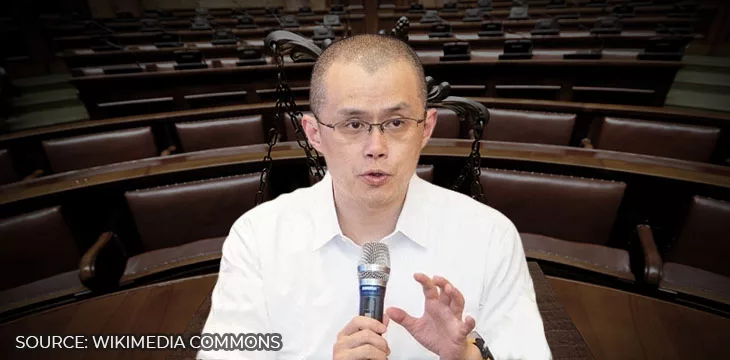|
Getting your Trinity Audio player ready...
|
A Brazilian congressional committee has recommended that Binance founder Changpeng Zhao and three other senior executives be indicted for fraud, illegal securities trading, and operating without a license.
The recommendations are made in a 509-page report published following a Congressional investigation into fraud within the digital asset industry. It says that Zhao, together with Daniel Mangabeira, Guilherme Haddad Nazar, and Thiago Carvalho, have been operating within Brazil without the necessary licenses. They are also accused of ‘fraudulent management practices.’ Specifically, the report urges federal prosecutors to investigate Binance for tax evasion, money laundering, organized crime, and its derivatives products.
Mangabeira, Nazar and Carvalo are Brazil-based Binance executives. Mangabeira is a political and government affairs executive for the company. Nazar is the general director for Binance Brazil. Carvalho is Binance’s senior legal counsel for Latin America. Looking at that line-up, it’s clear that the committee’s priority is looking behind corporate structures and punishing the individuals that have affected Binance’s apparently widespread evasion of laws and regulations around the world.
The committee itself is not empowered to issue indictments. However, it has referred its recommendations to Brazil’s Federal Police, Federal Revenue Department, and Federal Public Ministry. Together with the Binance executives, the report recommended indictments against 45 individuals in total. It also urges the country’s securities regulator to investigate Binance over its derivatives products.
Valor Econômico, Brazil’s largest financial newspaper, reported in April that the country’s Public Ministry and the Federal Police had begun investigating Binance for offering its services to Brazilians without authorization, apparently accusing Binance of helping citizens evade geoblockers to access the platform. Notably, it reported that Binance employees who passed out these instructions could be targeted by indictments and face between six months and two years in prison.
Bloomberg also said that Brazil’s securities regulator, Comissão de Valores Mobiliários (CVM), had rejected a $396,000 settlement offer from Binance.
Brazil has made concerted efforts to curb criminal digital asset activity within its borders. Authorities have liberally seized stolen digital assets under its anti-money laundering umbrella. This has included assets seized directly from exchanges that knowingly facilitated money laundering by allowing illicit money to pass through their platforms, often without even the bare minimum of compliance barriers.
Further, Brazil’s digital asset law, known as the Legal Framework for Virtual Assets in Brazil, entered into force in June of this year. It creates legal definitions for various digital asset terms, establishes licensing requirements guiding principles for digital asset activity, and creates criminal liability for intermediaries that effect fraud.
Following the publication of the committee’s report, a Binance spokesperson gave Bloomberg the usual line about how Binance is being unfairly targeted without proof:
“We went to great lengths to actively collaborate with the committee. (We) strongly reject any attempts to make Binance a target or even to expose its users and employees with allegations of bad practices without any proof, amid competitive disputes given the company’s leadership position in Brazil and in the world.”
However, Brazil is merely the latest of many jurisdictions to take action against Binance. It is currently battling two separate U.S. regulators for fraud and illegal securities offerings, is the subject of a money-laundering investigation in France, and has been banned by the U.K.’s Financial Conduct Authority. Its legal troubles have also forced the company out of Canada and the Netherlands, and has been cut off from banking in multiple countries, including Australia and the United Kingdom.
As the list of governments and regulators taking action against Binance grows, it should be getting harder and harder for the company to claim that it is being unfairly persecuted. Employees of Binance doing Zhao’s dirty work should also consider themselves on notice: governments are serious about punishing individual executives for carrying out the apparent orders of the company. However, if its response to the latest allegations is anything to go by, that background won’t stop Binance from claiming it’s being treated unfairly anyway.
Follow CoinGeek’s Crypto Crime Cartel series, which delves into the stream of group—from BitMEX to Binance, Bitcoin.com, Blockstream, ShapeShift, Coinbase, Ripple,
Ethereum, FTX and Tether—who have co-opted the digital asset revolution and turned the industry into a minefield for naïve (and even experienced) players in the market.

 02-28-2026
02-28-2026 




